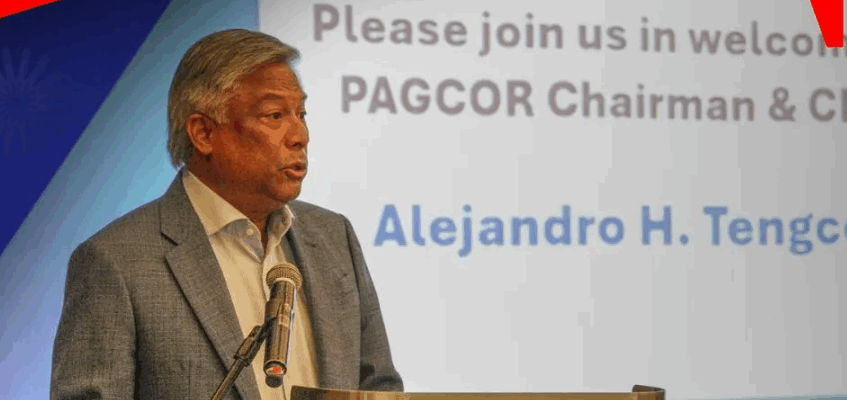Philippine Amusement and Gaming Corporation (PAGCOR) chairman and CEO Alejandro Tengco has reiterated that the future of iGaming in the Philippines should be shaped by tighter regulation, not prohibition.
PAGCOR Chief Backs Stricter Oversight Instead of iGaming Ban

Philippine Amusement and Gaming Corporation (PAGCOR) chairman and CEO Alejandro Tengco has reiterated that the future of iGaming in the Philippines should be shaped by tighter regulation, not prohibition.
Speaking at the Light & Wonder iGaming Symposium held at Newport World Resorts in Pasay City, Tengco argued that an outright ban would only push gambling underground while depriving the government of crucial tax revenues.
“The iGaming story in the Philippines is no longer just about growth—it is about safe, fair, and sustainable growth,” Tengco said. “We support stronger regulations to protect the public, but a blanket ban would only drive players to illegal operators, costing the country both tax income and jobs.”
iGaming Outpaces Land-Based Casinos
PAGCOR data shows that electronic gaming GGR rose from PHP 58.16 billion (US$1bn) in 2023 to PHP 154.51 billion (US$2.72bn) in 2024, representing nearly half of the industry’s total GGR of PHP 372.33 billion (US$6.6bn).
In just the first half of 2025, iGaming generated PHP 114.83 billion (US$2bn), surpassing land-based casino revenues and pushing PAGCOR’s overall income to PHP 59 billion (US$1.03bn). Tengco credited these gains to regulatory reforms, including adjustments to licensing fees.
Reforms and Responsible Gaming
Tengco emphasized that reform remains central to PAGCOR’s agenda. Measures include:
- Separation of regulatory and operational functions,
- Stricter advertising rules,
- Enhanced responsible gaming safeguards,
- Digital monitoring tools such as the PAGCOR Guarantee portal and AI-driven systems.
He also revealed plans to launch a 24/7 player helpline and encouraged operators to adopt a “compliance by design” mindset.
“Through responsible growth, compliance, and transparency, the Philippines can build a safer, stronger, and globally competitive iGaming industry,” Tengco said.
Civic Action Against Illegal Operators
Civil society groups are also stepping in. Last week, the non-profit Digital Pinoys launched a reporting platform allowing citizens to flag unlicensed gambling sites, ads, and promoters.
National campaign director Ronald Gustilo explained that reports go through a two-step verification process: first, the group cross-checks against PAGCOR’s licensed operator list, then the Cybercrime Investigation and Coordinating Center (CICC) validates the case. Confirmed violations are passed to the Department of Information and Communications Technology (DICT) and the National Telecommunications Commission (NTC), which can order ISPs to block offending sites.
Whistleblower anonymity will be protected, Gustilo said, with only a limited number of authorized staff able to access reports.
“This is about more than blocking illegal gambling—it’s about building a safer digital environment,” Gustilo added. “By empowering citizens to report and ensuring agencies act on those reports, we aim to restore public trust online while protecting vulnerable groups such as youth and seniors, who are often targeted by predatory operators.”












